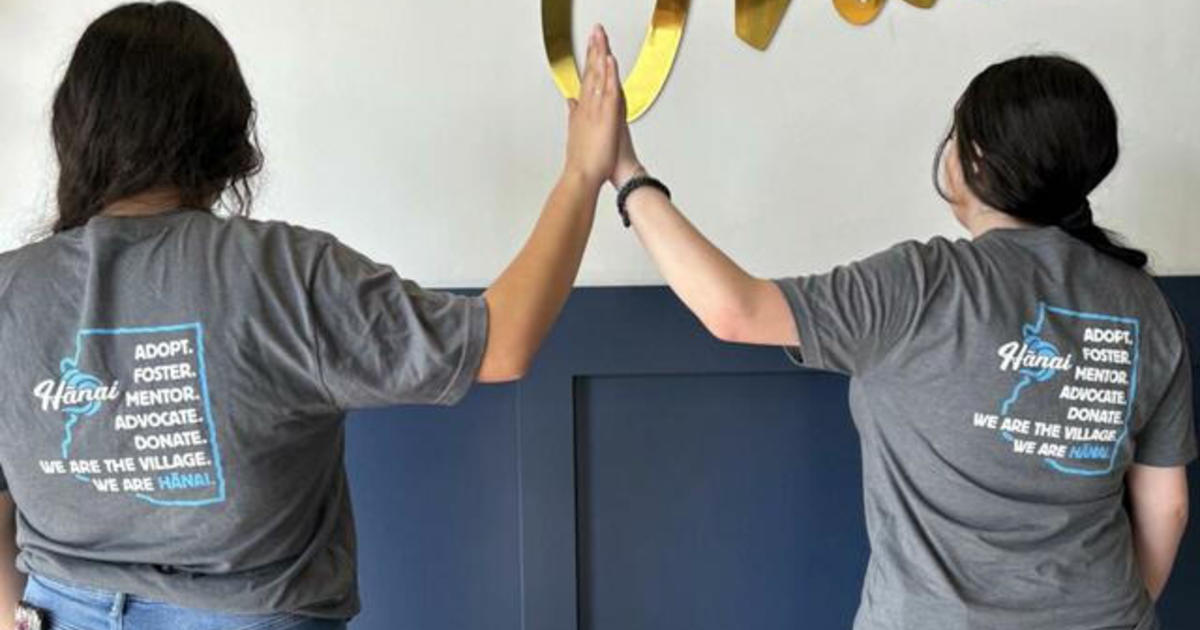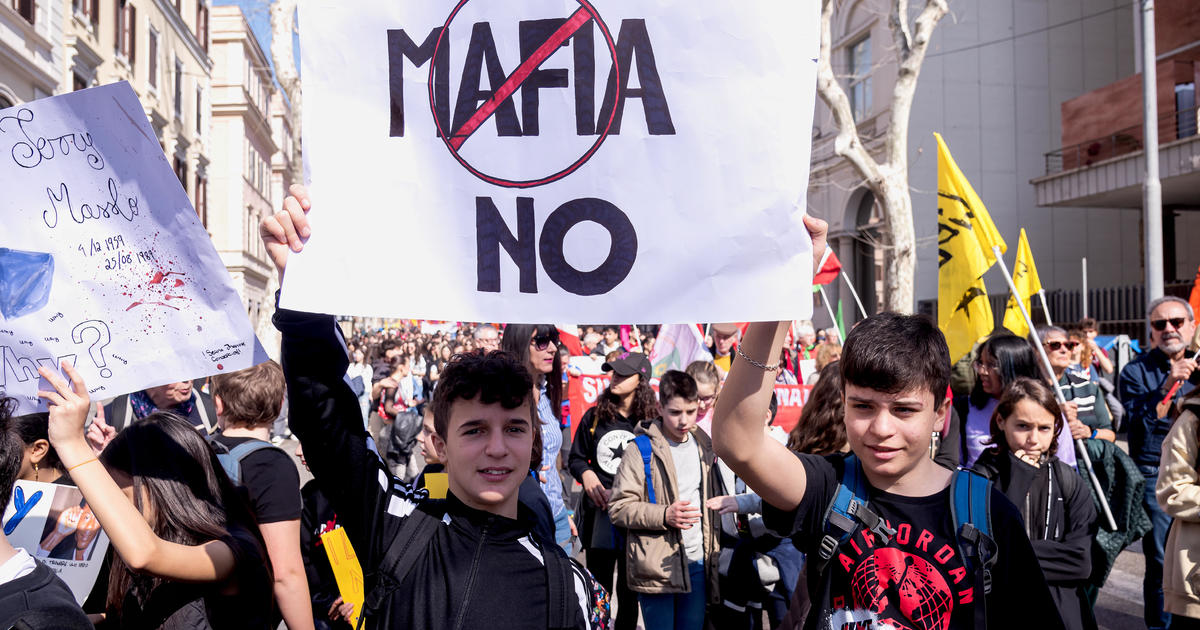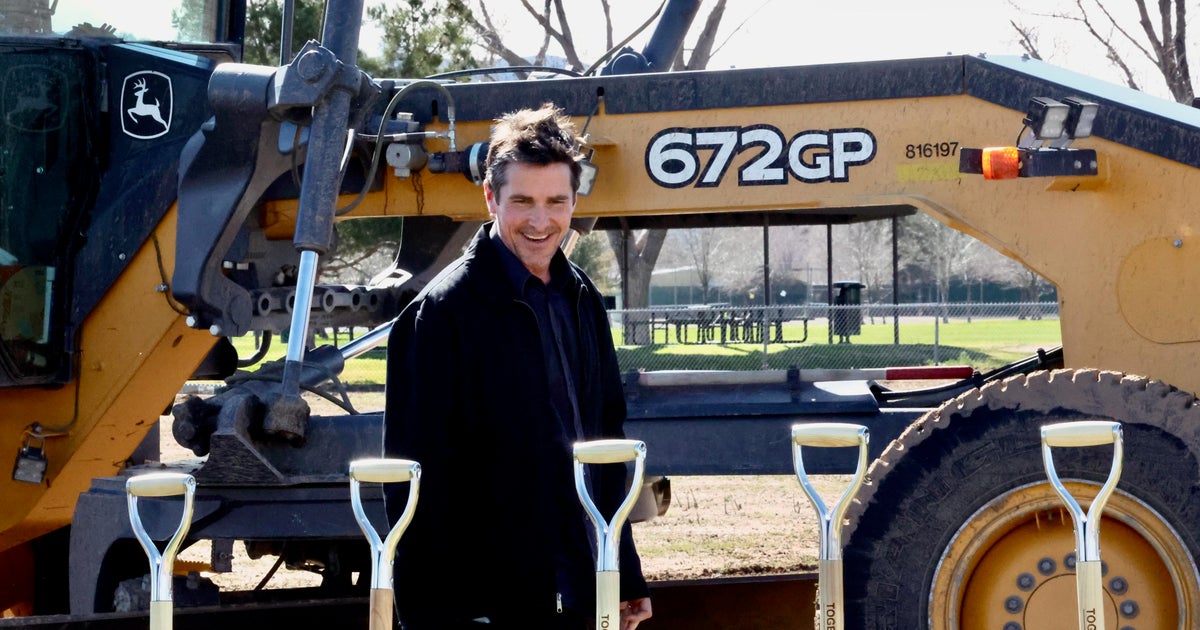CBS News
Foster children deprived of benefits: How a loophole affects the most vulnerable

Katrina White remembers just how determined her parents were to see her, and all her siblings, go to college. That never happened.
She lost her father when she was nine years older. Then, she lost her mother, too, in 2013. After living initially with an older sister, White spent most of the next seven years in group homes throughout Southern California.
She said it had never occurred to her that she would end up in foster care: “I didn’t even know what foster care was.”
Ian Marks, who grew up in New Orleans, was in foster care for eight years. Anthony Jackson (known as A.J.) spent his teenage years as a ward of the state of Minnesota. Justin Kasieta, who grew up in the Upper Peninsula of Michigan, was in foster care for about three years.
Each of these young people ended up in the care of the state for the worst possible reason: the death of one or both parents.
“When I was 15 years old, unfortunately, my father got diagnosed with an aggressive form of cancer,” said Kasieta.
Ian Marks’ story is particularly heartbreaking – his mom and dad were both in the military: “And my dad had killed my mother when I think I was around, like, 11 or 10 years old. I found her body in my house.”
But their shared loss doesn’t end there. After being placed in foster care, they discovered that government benefits that they should have been receiving after the deaths of their parents – Social Security, death or veterans benefits – had instead been claimed by the state.
Kasieta said, “While I was in foster care, I realized that I was supposed to be receiving these benefits. I inquired with my case worker, and they informed me that they would be taking the checks to reimburse themselves for my care and my siblings’ care.”
And that’s the issue here: in most states, foster kids receive their care for free. The only children who are singled out to pay for their own care are those receiving federal benefits, either because they are disabled, or have a deceased parent.
Amy Harfeld, the national policy director for the Children’s Advocacy Institute at the University of San Diego School of Law, said, “It’s not the state’s money to take; it’s the child’s money. It’s their property.”
Harfeld said children who have lost parents are often the most vulnerable. “We know that these young people have needs, and we know that when the benefits are applied for, there’s a good use for them,” she said. “But right now, they’re being used only to benefit the state.”
And according to Harfeld, the money isn’t being taken for foster care: “No, they’re taking the money really, in most cases, to put in general state accounts.”
Nationally, three-quarters of those in foster care entitled to benefits (according to the Social Security Administration, more than 25,000 children) are affected by this practice. But Harfeld says most kids have no idea, since agencies often apply for survivor and disability benefits without giving notice to the child, or his or her relatives.
“For sure, the secrecy is really the most insidious piece of this,” Harfeld said. “A lot of states might stand up and defend this practice, and to them I would say, if this is all above board, why are you doing it behind the kids’ backs? Why is it that you’re never telling them, or their attorneys, that you are doing this?”
The Social Security Administration estimates that $174 million in benefits a year are at stake. But Harfeld believes the number is actually higher. States are required by federal law to report back to the Agency how much of these benefits they take each year, but only about a dozen comply.
Ian Marks said, “My mother didn’t do all this work in the military just for this state to take this money and, as you hear, do nothing with it. Nothing, no changes, no benefits for me.”
Marks had it better than most; he was placed with one family. But often older children end up in group homes, or bounce from one place to another. Justin Kasieta lived in four different homes, and attended four different schools during high school.
And if it’s difficult to thrive in foster care, it’s even harder, they say, when you age out. “I aged out at 18 years old,” said Marks. “You don’t have access to a case worker anymore, and you are basically on your own. They may check and see if you have a job or if you have a place to stay. But if not, then you may just end up on the side of the street, which has actually happened to a lot of people.”
People like Katrina White. When she aged out of foster care at 21, in the fall of 2022, she ended up living in a tent alongside a busy San Diego freeway. “I would just wake up in the morning before the streetlights are off fully, and look around and be like, do I really want to be here?” she said.
White lived this way for more than seven months, while working part-time and taking college classes online.
She did much of her classwork in her tent. Asked if she was scared, she replied, “I was.”
Sarah Pauter, once a foster child herself, is project manager for a California non-profit that helps people like White (who have no place to live after foster care) to find housing. “I can’t think of a single person who would’ve persevered in her situation,” she said of White. “Every day for her was, where can I take a shower or use a bathroom, so I can manage my hygiene, and I can go to school and work and try to blend in?”
White was homeless and penniless, said Pauter, while welfare agencies had been collecting her survivor benefits for years. “I happened to just piece it together with Katrina, because I remembered in one of our earlier conversations, she mentioned both her parents had passed away,” Pauter said. “This happens behind the backs of young people.”
It hasn’t been easy to end the practice, said Illinois Congressman Danny Davis. “We think it’s very widespread, and that most states are doing it,” he said.
Since 2016 Davis has been pushing for Congress to prohibit states from taking federal benefits from foster children. “Let’s put it in some kind of reserve, a fund, so that as those individuals age out of the system, they may have a nest egg,” he said.
So far, Congressman Davis has been unable to get any version of the bill to a vote. “It has been challenging, I’ll put it that way,” he said.
But there is a growing recognition that children need more support when they leave foster care. Seven states (Connecticut, New Jersey, Maryland, Illinois, Nebraska, Arizona and Oregon) have now passed laws to help children keep their federal benefits – although a similar bill in California was vetoed by the Governor last year due to a shortfall in the state budget.
And there are signs that the federal agency that pays the benefits may do more.
Martin O’Malley, a former governor of Maryland, who became commissioner of the Social Security Administration late last year, said he does not believe it’s fair that children entitled to Social Security benefits have to pay for the foster care for which other kids don’t have to pay. “I don’t believe it’s the right policy outcome,” he said. “Clearly there’s a desire, a hope, that some of these dollars will be conserved for kids that are receiving Social Security benefits. But it doesn’t happen very often.”
Moriarty asked, “So you’re admitting it doesn’t happen. Isn’t that a violation of your own regulations, that this money is supposed to be conserved for these kids?”
“At this point, it is not,” O’Malley replied. “But the question is, should it be?”
But any future changes will come too late for A.J. and other children aging out of foster care now. A.J. estimates he missed out on $72,000 over six years. According to Kasieta, “Over $18,000 was taken.”
All four have still managed to beat the odds, and have gone on to college. Anthony Jackson is working on an art degree; Ian Marks is in law school; Justin Kasieta recently graduated from the University of Michigan; and Katrina White is studying social work, and now has stable housing.
Sarah Pauter, who was once there herself, said these are the lucky ones. She said she feels strongly about the issue of benefits, “because the outcomes of the young people who leave foster care are so bad. And so, until we have created a system that ensures that foster youth get everything that they need and that they make this transition to adulthood successfully, then it does not make sense for us to intercept money that could help them do that.”
For more info:
Story produced by Sari Aviv. Editors: Maria Barrow and George Pozderec.
CBS News
One year after Oct. 7 attack, the toll on civilians remains high

Watch CBS News
Be the first to know
Get browser notifications for breaking news, live events, and exclusive reporting.
CBS News
Open: This is “Face the Nation with Margaret Brennan,” Oct. 6, 2024

Watch CBS News
Be the first to know
Get browser notifications for breaking news, live events, and exclusive reporting.
CBS News
Kamala Harris will speak with “60 Minutes” tomorrow. Here’s what to know for the interview.

Voters will get the chance to hear from Vice President Kamala Harris on Monday as she presents her case for why she should be president in a “60 Minutes” election special.
For decades, “60 Minutes” has featured both Republican and Democratic nominees for presidents, but this year, former President Donald Trump backed out after previously indicating he would be on the show. Correspondent Scott Pelley, who’d been set to interview Trump, will instead travel to Arizona’s Maricopa County, home to more than 60% of Arizona’s voters and a critical battleground in a key swing state.
One thing is certain about the election; with the U.S. deeply involved in both the wars in Ukraine and the Middle East, whoever wins on Nov. 5 will become a wartime president.
What Harris will discuss
Israel’s war started one year ago after Hamas launched a surprise terror attack and correspondent Bill Whitaker will discuss the ongoing war with Harris.
Harris will also discuss the economy, immigration, her record as vice president and the differences between herself and Trump.
Democratic vice presidential candidate Gov. Tim Walz will also appear.
Whitaker joined the Democratic ticket on the campaign trail this week to gain insight into their platform’s priorities and values, and what the candidates believe voters should know.
Why Trump pulled out of the “60 Minutes” interview
Leading up to the candidate hour, Trump, through campaign spokespeople, was the first candidate to accept the “60 Minutes” request to be interviewed for the special, according to CBS News. It had been agreed that both candidates would receive equal time during the broadcast.
Trump last sat down with 60 Minutes in 2020. He walked out during the interview with Lesley Stahl. Trump referenced the incident on Tuesday night at a Milwaukee press conference when asked about his decision not to participate in the Oct. 7 “60 Minutes” election special.
“Well, right now, I went to – they came to me and would like me to do an interview, but first I want to get an apology, because the last time I did an interview with them, if you remember, they challenged me on the computer,” Trump said. “They said the ‘laptop from hell’ was from Russia, and I said it wasn’t from Russia. It was from Hunter, and I never got an apology, so I’m sort of waiting. I’d love to do ’60 Minutes.’ I do everything.”
The Republican nominee for president emphasized that he felt he was owed an apology from “60 Minutes.”
“Let’s see if they do it. I wouldn’t mind doing 60,” Trump continued. “I’ve done ’60 Minutes’ a lot.”
In a statement on Tuesday, Trump campaign communications director Steven Cheung said that Trump’s team had not agreed to an interview.
“Fake News,” Cheung said in a post on X. “60 Minutes begged for an interview, even after they were caught lying about Hunter Biden’s laptop back in 2020. There were initial discussions, but nothing was ever scheduled or locked in. They also insisted on doing live fact checking, which is unprecedented.”
Previous Trump, Harris appearances on 60 Minutes
Trump previously sat down with “60 Minutes'” Mike Wallace in 1985, Pelley in 2015 and Lesley Stahl twice in 2016, first in July of that year and then again in November of 2016. He also spoke with Stahl again in 2018 and 2020.
Harris previously sat down with Whitaker last year. She also was interviewed by Norah O’Donnell, “CBS Evening News” anchor and “60 Minutes” contributing correspondent, in 2020.







